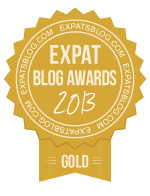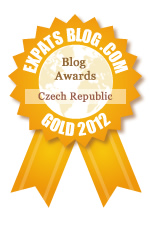
I finally made it to
Shanghai. Here's how it all started. I took the
Student Agency bus from Brno to Vienna Airport. No problem. I went to check in with Qatar Airways and then the fun began. The check-in agent wanted to see my Chinese
visa.

I explained that I don't need a visa because Shanghai permits 144-hour visa free travel for those en route to a third country. For an American citizen a Chinese tourist visa is $140. But if you're flying to/from another country then you can stay for 144 hours. And the 144 hours starts at 00:00 following your date of entry so depending on when you arrive you can actually stay more than 144 hours. For transit purposes,
China considers
Hong Kong,
Macau, and
Taiwan as separate countries.

For some reason the agent didn't know this and wanted to see my visa. I had to explain it a few times in both English and German. Then the supervisor got involved. I explained it again. Eventually, they were able to verify it, apologised for the delay and 45 minutes later I was checked in. On my way to the gate I took advantage of my
Oneworld Sapphire status and popped in the lounge for a quick bite before heading to the gate. I queued up when they called for priority boarding and the fun started all over again. The two gate agents wanted to see my visa. Again I explained that I'm travelling visa free but they just couldn't grasp it. I told them that I had just gone through this and to call their supervisor. I was told to wait to the side while they proceeded to check in everyone else. About 40ish minutes later the supervisor I dealt with earlier showed up, apologised for the second delay and allowed me to get on the plane. Everything was fine once I got on the plane for my 5 hour flight to
Doha, Qatar. I only had an hour layover so I was really hoping that no one would ask me for a visa again. Everything was good when I landed and I went straight to my gate on boarded my 9,5 hour flight to Shanghai.
 |
| My 144-hour visa |
Once I landed in Shanghai I went to the 144-hour visa queue. I showed my passport, hotel confirmation, and proof of my outgoing flight to
Taipei, Taiwan. The border agent wanted to see proof of payment for the ticket. So for this visa it's best to have a printed receipt from the airline to show as evidence.

After passing immigration, I picked up my luggage, bought a SIM card and headed for the maglev (magnetic levitation train). The maglev goes non-stop from the airport to downtown. The 30,5 km (18.95 mile) distance only takes 8 minutes. It has a top speed of 431 km/h (268 mph).
 |
| 301 km/h = 187 mph |
The maglev opened in 2004 and it is the oldest magnetic levitation train still in operation. It's still the world's fastest commercial electric train. A single ride costs ¥50 (~€6).
I feels good to finally be here. The plan is to explore Shanghai for a few days. One day I want to catch the bullet train to go spend a day in Nanjing. The forecast predicts a lot of rain over the next few days and my food tour for tonight was cancelled. But hopefully
the rain won't be too bad while I'm here.
 I finally made it to Shanghai. Here's how it all started. I took the Student Agency bus from Brno to Vienna Airport. No problem. I went to check in with Qatar Airways and then the fun began. The check-in agent wanted to see my Chinese visa.
I finally made it to Shanghai. Here's how it all started. I took the Student Agency bus from Brno to Vienna Airport. No problem. I went to check in with Qatar Airways and then the fun began. The check-in agent wanted to see my Chinese visa. I explained that I don't need a visa because Shanghai permits 144-hour visa free travel for those en route to a third country. For an American citizen a Chinese tourist visa is $140. But if you're flying to/from another country then you can stay for 144 hours. And the 144 hours starts at 00:00 following your date of entry so depending on when you arrive you can actually stay more than 144 hours. For transit purposes, China considers Hong Kong, Macau, and Taiwan as separate countries.
I explained that I don't need a visa because Shanghai permits 144-hour visa free travel for those en route to a third country. For an American citizen a Chinese tourist visa is $140. But if you're flying to/from another country then you can stay for 144 hours. And the 144 hours starts at 00:00 following your date of entry so depending on when you arrive you can actually stay more than 144 hours. For transit purposes, China considers Hong Kong, Macau, and Taiwan as separate countries. For some reason the agent didn't know this and wanted to see my visa. I had to explain it a few times in both English and German. Then the supervisor got involved. I explained it again. Eventually, they were able to verify it, apologised for the delay and 45 minutes later I was checked in. On my way to the gate I took advantage of my Oneworld Sapphire status and popped in the lounge for a quick bite before heading to the gate. I queued up when they called for priority boarding and the fun started all over again. The two gate agents wanted to see my visa. Again I explained that I'm travelling visa free but they just couldn't grasp it. I told them that I had just gone through this and to call their supervisor. I was told to wait to the side while they proceeded to check in everyone else. About 40ish minutes later the supervisor I dealt with earlier showed up, apologised for the second delay and allowed me to get on the plane. Everything was fine once I got on the plane for my 5 hour flight to Doha, Qatar. I only had an hour layover so I was really hoping that no one would ask me for a visa again. Everything was good when I landed and I went straight to my gate on boarded my 9,5 hour flight to Shanghai.
For some reason the agent didn't know this and wanted to see my visa. I had to explain it a few times in both English and German. Then the supervisor got involved. I explained it again. Eventually, they were able to verify it, apologised for the delay and 45 minutes later I was checked in. On my way to the gate I took advantage of my Oneworld Sapphire status and popped in the lounge for a quick bite before heading to the gate. I queued up when they called for priority boarding and the fun started all over again. The two gate agents wanted to see my visa. Again I explained that I'm travelling visa free but they just couldn't grasp it. I told them that I had just gone through this and to call their supervisor. I was told to wait to the side while they proceeded to check in everyone else. About 40ish minutes later the supervisor I dealt with earlier showed up, apologised for the second delay and allowed me to get on the plane. Everything was fine once I got on the plane for my 5 hour flight to Doha, Qatar. I only had an hour layover so I was really hoping that no one would ask me for a visa again. Everything was good when I landed and I went straight to my gate on boarded my 9,5 hour flight to Shanghai.
 After passing immigration, I picked up my luggage, bought a SIM card and headed for the maglev (magnetic levitation train). The maglev goes non-stop from the airport to downtown. The 30,5 km (18.95 mile) distance only takes 8 minutes. It has a top speed of 431 km/h (268 mph).
After passing immigration, I picked up my luggage, bought a SIM card and headed for the maglev (magnetic levitation train). The maglev goes non-stop from the airport to downtown. The 30,5 km (18.95 mile) distance only takes 8 minutes. It has a top speed of 431 km/h (268 mph).




















































